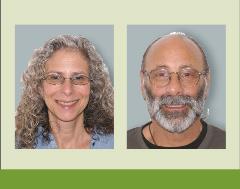Reflecting on Self-Reflection
 The experiential learning theorist David A. Kolb postulated in 1984 that reflection is integral to learning. In his widely influential experiential learning cycle theory, Kolb suggested that to learn from an experience, the experience must be followed by observation and reflection, after which the learner can hypothesize abstract concepts and generalizations, which can then be tested and applied to new situations.1 This is a cycle that is continually repeated. Think of how you have gained your knowledge, and you are likely to realize you have been doing this all along.
The experiential learning theorist David A. Kolb postulated in 1984 that reflection is integral to learning. In his widely influential experiential learning cycle theory, Kolb suggested that to learn from an experience, the experience must be followed by observation and reflection, after which the learner can hypothesize abstract concepts and generalizations, which can then be tested and applied to new situations.1 This is a cycle that is continually repeated. Think of how you have gained your knowledge, and you are likely to realize you have been doing this all along. Self-reflection is simply conscious attention to the reflective part of Kolb’s learning cycle as it pertains to your personality. In contrast to self-assessment, which is performance-driven, self-reflection is integral to self-development. As a dentist, you were trained to self-assess routinely. After each procedure, you still — hopefully — evaluate your own outcomes, identifying strengths and weaknesses in an ongoing effort to improve your performance. Similarly, you can learn to use self-reflection to deepen your self-understanding and self-knowledge.
Self-reflection, rather than focusing on refining procedures and processes, focuses on discovering more about personal attributes such as your behaviors, values, thoughts and emotions. Through self-reflection, you can begin to learn what is important to you. You can find out what has been holding you back. You can clearly identify your goals and desires. Self-reflection is the process of learning more about yourself so that you can adjust when necessary and improve.
How do you start?
1. Set aside some time for self-reflection on a regular basis. Determine the best time for some uninterrupted thought, and, if necessary, schedule it in your calendar. Eventually, you may be capable of self-reflection in the moment, but first you need to develop the skills required for productive self-reflection. If it helps, write your thoughts down.
2. Be honest. To reflect objectively, take a step back to a prior experience and view yourself in that experience as you would someone else, without judgment. From that vantage point, ask yourself a series of questions: What caused that? How did I feel about it? Why did I feel that way about it? Could I have done anything differently? What would I do next time? Answer these questions as dispassionately as possible. You may find that you have some trouble separating from your ego and that you are not able to view the experience any differently. If that is the case, think of what your harshest critic might have to say. If you are your harshest critic, refrain from self-critique or negative obsessive thoughts, and think of what your biggest fan would tell you.
3. Learn a lesson. Most experiences offer something to learn. Your task is to find out what you can learn from the experience and then apply that lesson to future similar experiences. In addition, you can use the exercise to determine whether you need to make changes and, equally important, whether you can figure out what is driving your thoughts, emotions and behaviors.
As a healthcare provider and caregiver, you do not usually turn your sharply focused lens on yourself. You have been trained to observe and tend to others. Self-reflection calls for spending time on yourself, which may feel unforgivably indulgent. However, due merely to the fact that you are a healthcare professional, members of society have entrusted you with their care. In return, you are obligated to be the best that you can be — not only as a dentist, but as a human being. To be your best self, you must engage in ongoing growth and improvement through self-reflection.
Ivy D. Peltz, DDS, MSEd, PhD, MAGD, is retired from private practice in New York City. Eric S. Studley, DDS, is the president and CEO of Eric S. Studley & Associates, an insurance brokerage company specializing in the insurance and financial needs of dentists. They are both retired from academic positions at the New York University College of Dentistry. Together, they co-founded Doccupations, the dental career services component of Eric S. Studley & Associates. To comment on this article, email impact@agd.org.
Reference
1. Kolb, David A. Experiential Learning: Experience as the Source of Learning and Development. Prentice Hall, 1984.
